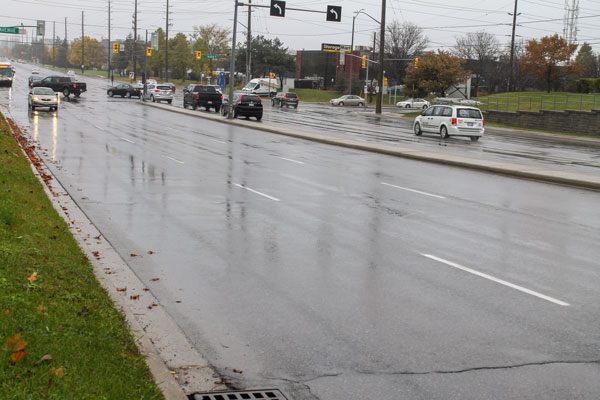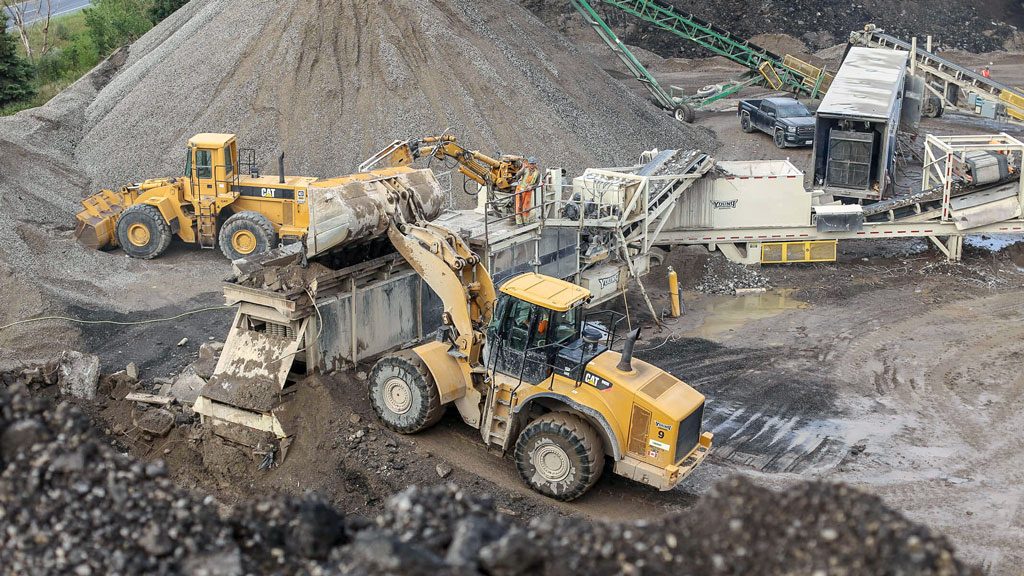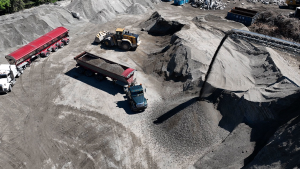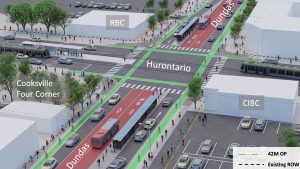A recent report from the Toronto and Area Road Builders Association (TARBA) in conjunction with other ICI partners has revealed divergent municipal practices across the province for using recycled aggregates in the construction of new roads.
The cities of Toronto, Cambridge and Markham were the top three users of recycled asphalt, concrete and other forms of aggregate among large cities participating in the survey while Mississauga, Oshawa and Peel Region were at the bottom.
The results, published Oct. 18, indicate many of the “laggards” in the municipal sector, as they were described by the TARBA report, have not responded to the 2017 report by Ontario’s Environmental Commissioner calling for more use of recycled aggregate nor to recommendations supported by studies undertaken by such groups as the Ministry of Transportation (MTO), the Ontario Road Builders’ Association, the Ontario Good Roads Association (OGRA) and the Ontario Asphalt Paving Council.
Ontario currently uses about 184 million tonnes of aggregate a year. Of this amount, only about 13 million tonnes or seven per cent comes from recycled sources. The MTO is a leader in the province, using about 20 per cent recycled materials in its highway construction.
“At the end of the day what we want is to get some of the municipalities who aren’t on board to use more recycled aggregate,” said Rob Bradford, TARBA executive director.
Bradford said the unwillingness of some municipalities to reuse aggregate has an environmental cost, in that quarries are being depleted of virgin aggregate and there’s significant greenhouse gases produced by trucking in new materials instead of using nearby stockpiled recyclable aggregate. It also hampers contractors who are forced to store growing “mountains” of used aggregate.
“It’s ironic, here you have the environmental ‘bad guys,’ the contractors, we are the ones trying to push the environmental imperative here,” he said.
OGRA executive director Joe Tiernay described the environmental message as being about “stewardship of finite resources.”
“There is only so much virgin aggregate in our province,” he said. “If we continue to disregard recycled aggregates we will drive up the costs.”
Other participants in the TARBA awareness campaign are the Heavy Construction Association of Toronto, the Greater Toronto Sewer and Watermain Contractors Association, the Ontario Sewer and Watermain Construction Association and the Residential and Civil Construction Alliance of Ontario.

Tiernay and Bradford said the major issue for municipalities who refuse to mandate higher usage of recycled aggregate is a concern about quality. But the concern is unfounded, they argue.
“It’s been proven that using recycled aggregates in road construction is not detrimental to the longevity of roads, provided a certain percentage is being used,” said Tiernay.
Said Bradford, “The pushback is over concerns about quality. My answer to that is, it is like any other material, if it is produced and delivered on specification it’s fine. It is up to the owner to do a little quality assurance testing to make sure they get the product they ordered.”
The TARBA report found many large municipalities severely limit the use of recycled aggregate materials for new roads and infrastructure. Some follow the Ontario Provincial Standards Specifications for roadbuilding which are voluntary and do not contain requirements calling for minimum levels of recycled aggregate, while others follow their own practices with the provincial standard as a baseline.
“They say they use the provincial standards,” said Bradford. “The fact is, my members come back and tell me, well no, they don’t because they are not allowed to use recycled aggregate. Either they lip-service using the provincial standards and find exceptions for every job, or they are not following them.”
TARBA and its partners want the municipalities to collaborate more to share best practices and elevate standards, with 15 to 20 per cent use of recycled aggregate as a new benchmark.
Part two of the TARBA campaign will get underway in upcoming weeks and will see TARBA asking municipalities to adopt a draft municipal recycling policy that has been created.
The OGRA has municipalities among its members but so far workshops and other outreach that promote the proven reliability of recycled aggregate have failed to translate into better standards across the board, Tiernay said. He suggests new provincial policy might be required to ensure more uniformity of standards.
“Municipalities are very singular that way,” said Tiernay. “They do their own thing.”
The Association of Municipalities of Ontario (AMO) offered a statement when asked for comment.
“Ontario is a huge province, with 444 municipal governments and hundreds of unique communities,” said Jamie McGarvey, AMO president. “Flexibility is needed to meet different local needs. What’s best in Toronto may not be best for Kenora or Cornwall, and treating different communities as though they are all the same tends to create more problems than it solves.”
A statement from Mickey Frost, director of transportation for the bottom-ranked City of Mississauga, indicated the data submitted to TARBA did not reflect its current practices.
“We’re committed to increasing the use of recycled aggregates by continuously reviewing policies, benchmarking with other municipalities and conducting research to identify best practices. This ensures that we’re upholding and executing environmentally friendly practices,” said Frost.











Recent Comments